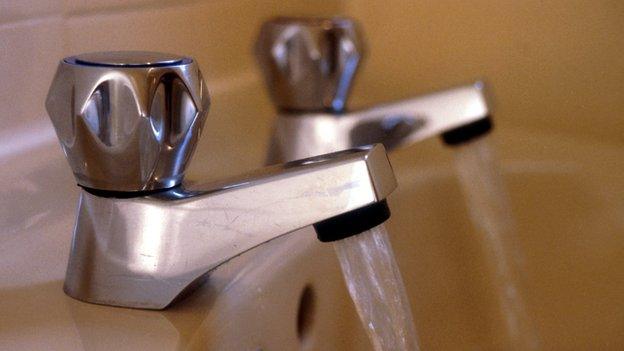Universal water charges in Ireland to come to an end
- Published
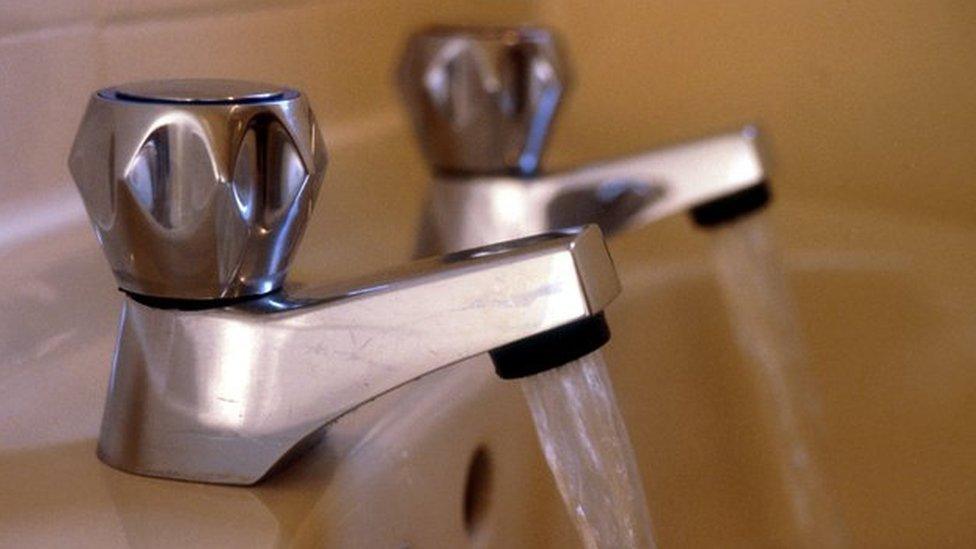
Universal domestic water charges were announced in 2014 as an austerity measure
Controversial water charges in the Republic of Ireland will largely come to an end after a vote in the Dáil (Irish parliament).
The austerity measure was introduced in 2014 but was the subject of widespread protests.
The Dáil voted by 96 votes to 48 to accept a report by the Committee on the Future Funding of Water Services.
The report recommended that only people who excessively use water will be charged as opposed to all water users.
Those who have already paid since charges were introduced in 2014 will be refunded.
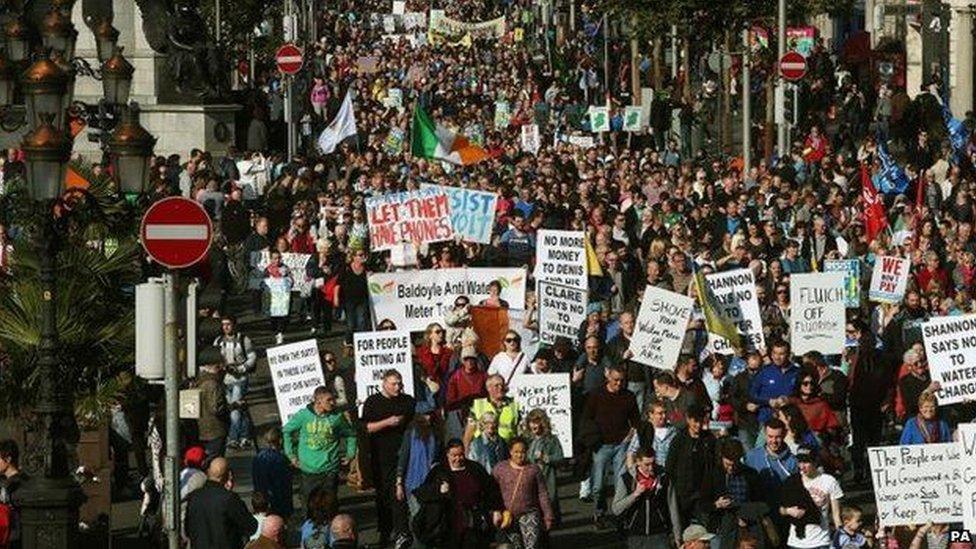
There were widespread protests at the introduction of water charges
A referendum will also be held to prevent Irish Water, the utility company in charge of the water network, from being privatised.
The charges were introduced as a key part of the government's plan to pay back the international financial bailout the state had to seek in 2010.
The Fine Gael-Labour coalition government at the time said the charges are necessary because it costs roughly 1 billion euros (£790m) a year to supply water out of general taxation.
However, tens of thousands of people took part in demonstrations against the charges after their introduction was announced.
- Published23 January 2016
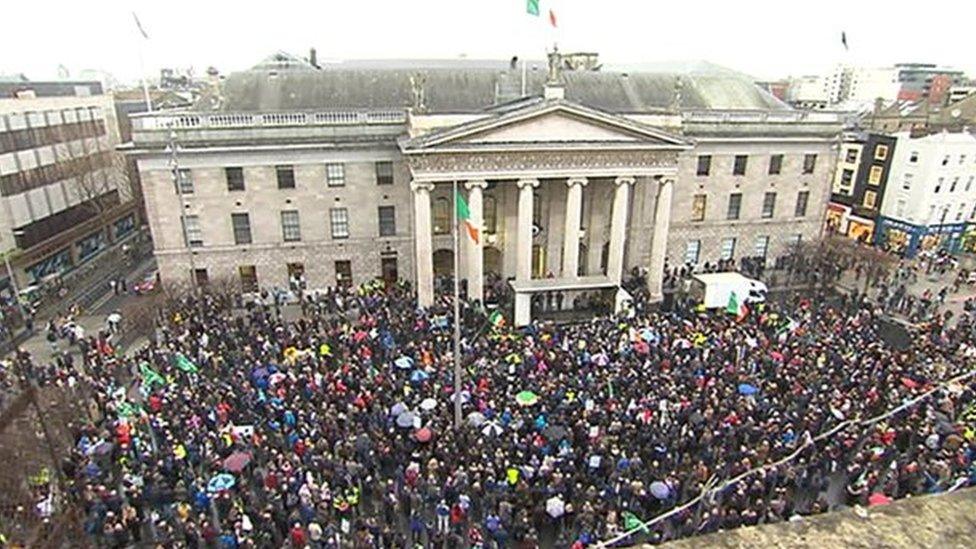
- Published8 April 2015
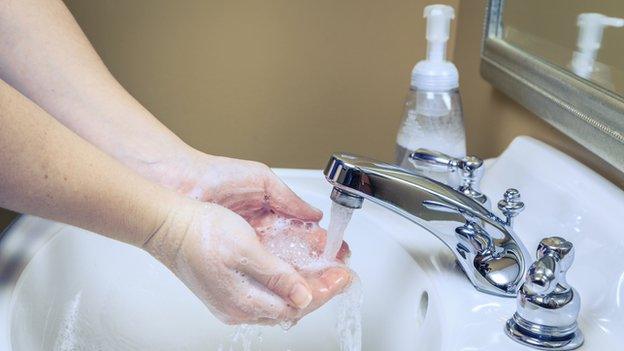
- Published19 November 2014
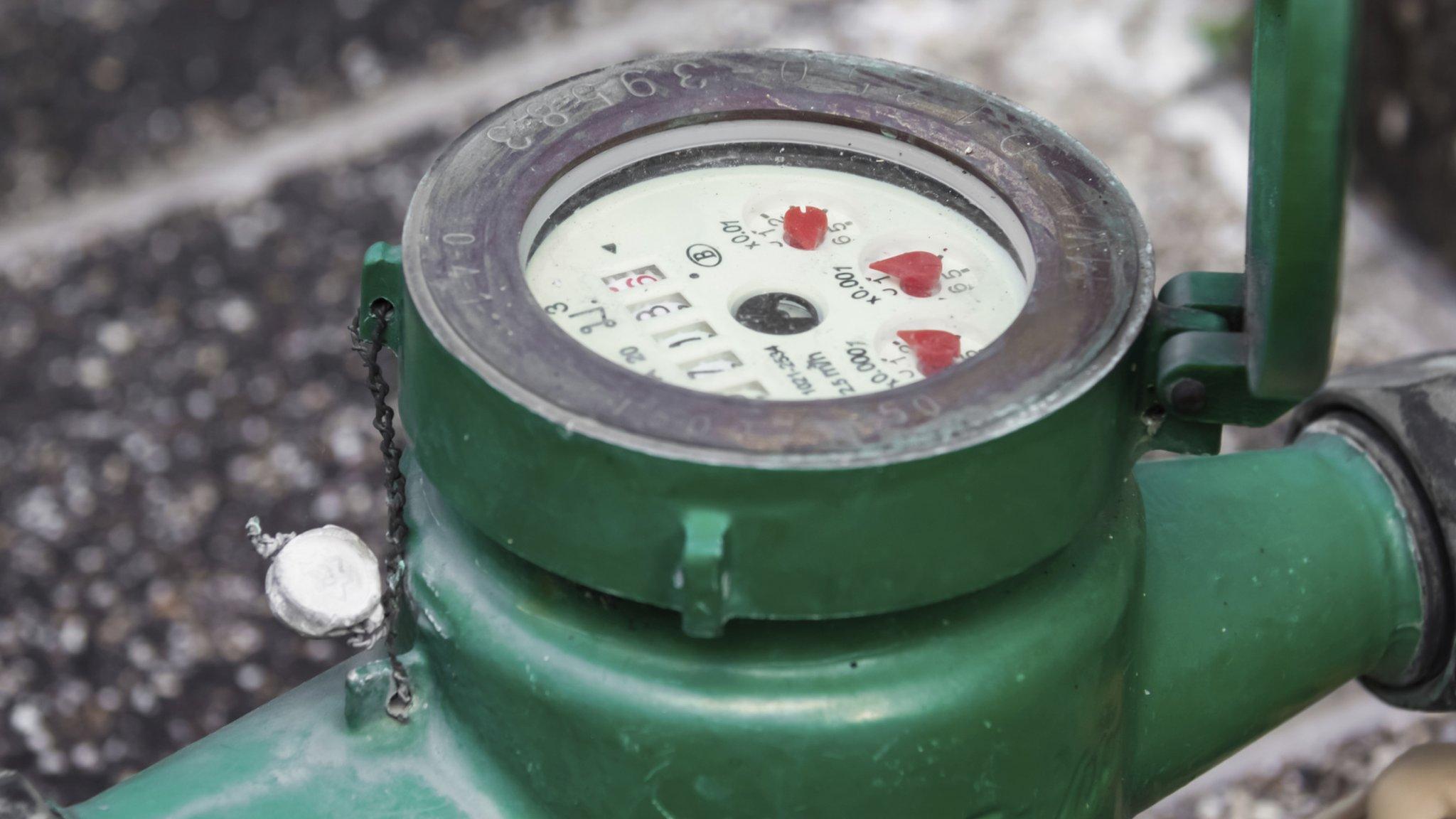
- Published30 September 2014
